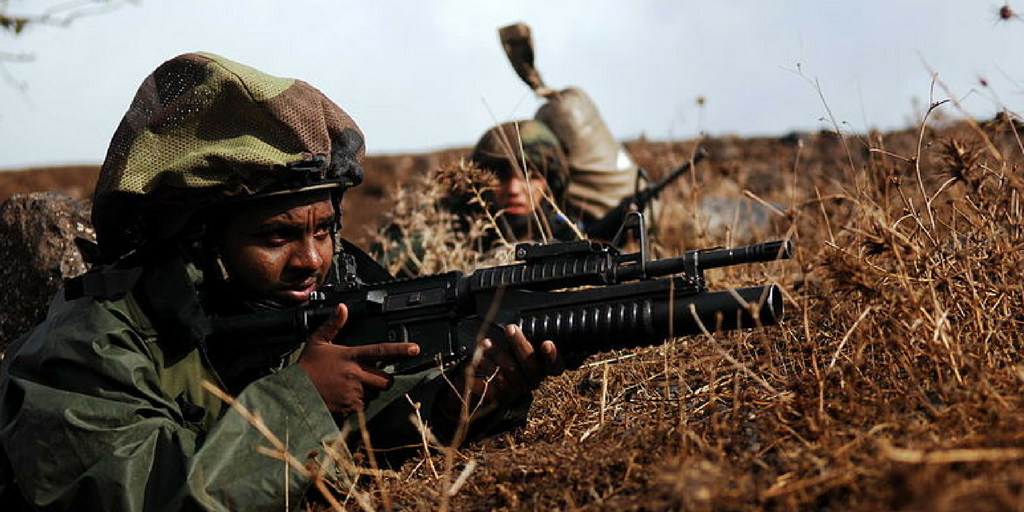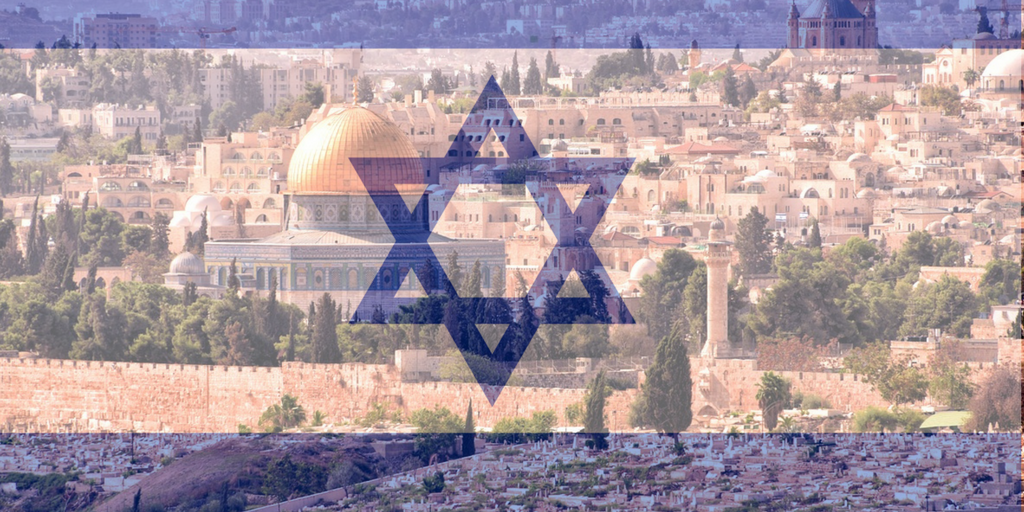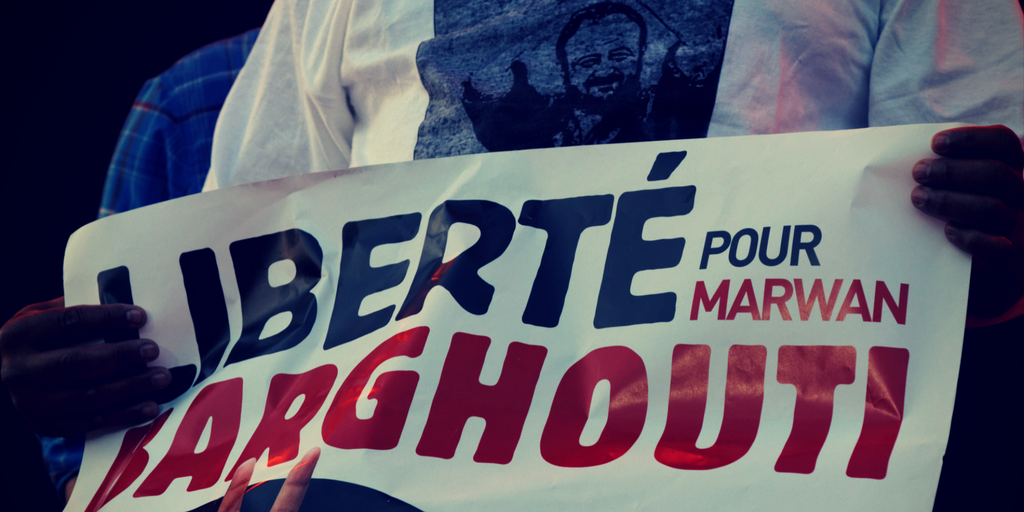Originally published under the name: The Israel Victory Caucus: Kudos and Caveats
The launch of Israel Victory Caucus is an initiative that has the potential to be a positive paradigmatic game-changer in the discourse on the Israeli-Palestinian conflict
Palestinians will have to pass through the bitter crucible of defeat, with all its deprivation, destruction, and despair as they repudiate the filthy legacy of Amin al-Husseini and acknowledge their century-long error…there is no shortcut.—Daniel Pipes, A New Strategy for Israeli Victory, Commentary, December 14, 2016.
At just about the time that this column was submitted for publication (Thursday, April 27, 2017), an event of potentially great long-term significance was taking place in Washington. This was the launch of the Congressional Israel Victory Caucus (CIVC) by Congressmen Ron DeSantis (R-FL) and Bill Johnson (R-OH).
Welcome & Timely
The launch was the culmination of an initiative of the Middle East Forum (MEF), headed by its president, prominent scholar, Daniel Pipes, aided by MEF Director, Gregg Roman.
According to a MEF press release : “The caucus calls for a new U.S. approach to the Israeli-Palestinian conflict, ending the emphasis on Israel making ‘painful concessions’ and instead putting the onus on Palestinians – they must give up the goal of destroying Israel and recognize Israel as the Jewish state.”
A similar sentiment was conveyed in a remark by Rep. DeSantis : “Israel is our strongest ally in the Middle East, as we share common national interests and possess similar national values. Israel is not the problem in the Middle East; it is the solution to many of the problems that bedevil the region.American policy must ensure that Israel emerges victorious against those who deny or threaten her existence.”
This launch of a congressional caucus promoting the notion of Israeli victory, rather than Israeli appeasement, is a decidedly welcome and timely—indeed, a long overdue—development. This is particularly true since in the political and strategic discourse in Israel itself, the idea of “Victory” seems to have been entirely expunged from the lexicon of the nation’s decision-makers—both as an attainable (alas, even a desirable) operational goal and as a valid cognitive notion. Disturbingly, this appears to be the case even among the senior echelons of the IDF officer class and other branches of the security establishment.
Indeed as MEF president Pipes lamented several years ago: “no one at the upper echelons of Israel’s political life articulates the imperative for victory. For this reason, I see Israel as a lost polity, one full of talent, energy, and resolve but lacking direction…”
It is left to hope that the newly launched CIVC will constituent a step towards remedying this grave lacuna.
Collapse of conventional wisdom
The conceptual foundations of CIVC are eminently sound and derive from the indisputable failure of conventional wisdom regarding conflict resolution, in general and the Israel-Palestinian conflict, in particular.
Thus, in his recent Israeli victory is the only way to advance peace process, Roman challenges prevailing precepts: “Today’s conventional wisdom holds that conflicts are best resolved through negotiation and compromise. But let’s look at the facts. After 40 years of negotiations to reunite Cyprus, the island remains divided, and 60 years of standoff over the Korean peninsula have achieved little. In Syria, the killing continues unabated despite five years of talks to reconcile Sunnis and Alawites. And at the same time, years of diplomatic efforts to roll back Iran’s nuclear program ended with the West’s capitulation to Tehran’s demands.”
He adds pointedly: “The negotiations fallacy is especially evident in the Arab-Israeli conflict”.
Roman goes on to stipulate the elements of a bold new strategy for attaining peace. Citing several historical examples to corroborate his contention –from the time of the Roman Empire, through the American Civil War to World War II—he asserts “For most of human history, military victory ended wars”. Applying this to the Arab Israeli context, he concludes: “In order for there to be peace between Israel and its Arab neighbors, Israel must win and the Palestinians must lose.”
Condemning concessions
The elements of Roman’s blueprint closely mirror the principles laid out by MEF president Pipes, in several earlier pieces, including a recent piece in Commentary, A New Strategy for Israeli Victory .
In it, he articulated the imperative for imposing defeat sufficiently devastating on the Palestinians so as to break their will to persist in fighting Israel and their endeavor to destroy the Jewish state. He provides a compelling case against Israel’s two decades long policy of concessions intended to generate Palestinian goodwill and argues, as I have done repeatedly in the past, that these have not only proven to be futile but detrimental, Indeed, they have tended to whet the Palestinians appetite, rather than satiate it.
Pipes castigates successive Israeli governments: “Thus [Rabin’s] government and all its successors agreed to a wide array of concessions…always hoping the Palestinians would reciprocate by accepting the Jewish state…They never did. To the contrary, Israeli compromises aggravated Palestinian hostility. Each gesture further radicalized…the Palestinian body politic. Israeli efforts to “make peace” were received as signs of demoralization and weakness.”
Against this backdrop of the recurring failure of repeated concessions and conciliation, Pipes proclaims: “Wars end, the historical record shows, not through goodwill but through defeat.”
“The bitter crucible of defeat…”
Accordingly, he proposes striking out in a new (or more precisely, a renewed) direction: “This brings us to the key concept of my approach, which is victory, or imposing one’s will on the enemy, compelling him through loss to give up his war ambitions…”
He observes: “Wars usually end when failure causes one side to despair, when that side has abandoned its war aims and accepted defeat, and when that defeat has exhausted the will to fight,” and correctly cautions that, by contrast: “…so long as both combatants still hope to achieve their war objectives, fighting either goes on or it potentially will resume.”
In applying these general principles to the specifics of the Israeli-Palestinian context, Pipes presents (see opening excerpt) a stark and stern prescription for ending the conflict: “Palestinians will have to pass through the bitter crucible of defeat, with all its deprivation, destruction, and despair…”
In this, Pipes largely embraces the spirit of measures I called for just over a decade-and-half ago in an Op-Ed piece entitled Conquer or capitulate (and again, in a later version), in which, I argued (much like Pipes and Roman) that, without inflicting devastating defeat on the Palestinians, there would be no end to the conflict.
There were, however, some important differences between our approaches—which brings me from the kudus to the caveats.
Defining “Defeat”
If the idea of “peace through victory” is to become more than an academic exercise in political theorizing, it needs to be advanced from its conceptualization to its operationalization.
This means the prescribed “Victory”—and its derivative “Defeat”—cannot be left as abstract concepts. Clearly, if they are to be adopted as practical policy goals, they need to be given clear operational definitions. For without a clear idea of what has to be achieved on the one hand and what has to be inflicted on the adversary on the other, the notion of “peace through victory”—and any congressional caucuses founded on it—will never, indeed can never, lead to any actionable policy prescriptions.
It is, thus, not sufficient to merely advocate desisting from a policy of conciliation and concessions, but it is essential to designate what would be considered an adequate victory and a resultant effective defeat?
Moreover, given the attainment of such “victory”, what are the ramifications of victory to be and what should the elements of “post-victory” policies comprise?
Can the currently declared demands of the Palestinians, prior to “defeat” (i.e. statehood), be acceded to, pursuant to “defeat”—without such defeat becoming, paradoxically and perversely, a medium for attaining the fruits of victory that previously eluded them.
These are questions that the CIVC initiative cannot ignore or evade if this worthy endeavor is to be translated into practical policy. This is particularly true, since, according to the previously cited MEF press release, a parallel caucus in Israel’s Knesset is to be launched in Jerusalem this July. For while it may be possible for the US-based legislative caucus to confine itself to well-intentioned generic policy guidelines, this is a luxury an Israeli-based legislative caucus does not have.
Victory: From Conceptualization to Operationalization
For if such a caucus is to be in anyway politically relevant, it will not be able to avoid formulating actionable policy prescriptions relating to the conditions that need to be achieved for Israeli victory and to be imposed for Palestinian defeat.
This would involve addressing questions such as:
Would “victory”/”defeat” entail the formal declaration of surrender by the Palestinians? If so, by which Palestinians?
Would this have to be binding on both Fatah and Hamas? If not, what would the repercussions of this be? If it would include Hamas, would it be binding on other radical extremist organizations? If not, what would the repercussions of this be?
Would “victory”/”defeat” call for exile (permanent or temporary?) of the belligerent Palestinian political leadership? If so, to where? If not, what would be its fate and status? Would they be prosecuted/ incarcerated?
Would “victory”/”defeat” entail dismantling all of the armed Palestinian organizations and a resumption of Israeli responsibility for law and order? For how long?
Perhaps most crucially: How many Palestinian casualties would Israel need to inflict in order to achieve “victory” (i.e. unconditional Palestinian surrender)? Could Israel inflict this number without incurring highly detrimental international sanctions? Could Israel inflict such a number without precipitating international intervention, even military – by, say, Turkey, Iran, or other Arab states?
But beyond such specific questions, perhaps the most elemental and daunting challenge would be not to stipulate what constitutes “victory” but to persuade decision-making echelons that such “victory” actually is feasible.
Given the hold that concessionary political correctness has on the mindset of many Israeli decision-makers this will be no easy task even if the potential advantages of obtaining such a victory are not disputed. This would require initiating and fostering/promoting vigorous and ongoing public debate to apply pressure on decision makers to adopt a concept now largely discredited as unobtainable.
Avoiding Inappropriate Analogies.
In stipulating parameters for Israeli victory, and the resultant ramifications for subsequent Israeli policy, it is important not to be misled by inappropriate historical precedents.
In making the historical case for the victory-induced peace, both Pipes and Roman invoke the cases of Germany and Japan. Roman writes: “….German and Japanese ill-will toward Western democracies in World War II rapidly dissipated, thanks to the bitter pill of defeat; friendship soon followed.”; while Pipes remarks: “…if Germans and Japanese, no less fanatical and far more powerful, could be defeated in World War II and then turned into normal citizens, why not the Palestinians now?
While this is factually true, these instances are unlikely to be instructive for the Israel-Palestinian conflict, at least as far as post-victory policy design is concerned.
After all, it should be recalled that in these cases the vanquished powers were not surrounded by, or adjacent to, countries with large populations of ethnic kin/co-religionists, who could sustain resistance and incite unrest within their borders.
Thus, Germany was not surrounded by a swathe of Teutonic nations, nor Japan by a swathe of Nipponese nations, which could provide a constant stream of insurgents and armaments to undermine any arrangement or undercut any resolution the victorious powers wished to implement.
This, however, would definitely be the case in the Israeli/Palestinian situation, as was the case in Iraq and Afghanistan, where neighboring Islamic states constituted a virtually unending source of instability and incitement after initial victory.
Clearly, this is an element that has dramatic implications for post-victory policy—especially with regard to the prospect of relinquishing Israeli control over any territory to Palestinian rule—even after a crushing defeat has been inflicted.
To be continued…
The CIVC initiative is an enterprise that has the potential to be a positive paradigmatic game-changer with regard to the resolution of the Israeli-Palestinian conflict. As such, it merits more than one column in this INTO THE FRAY series.
Accordingly, subject to breaking news, I will devote next week’s column to further analysis of the possible pay-offs and pitfalls this commendably daring initiative could herald.
In it, I intend to broach such topics as: “Distinguishing deterring enemies from defeating them”; “The Palestinian-Arab-Muslim nexus”; “Kinetic and non-kinetic routes to victory” and perhaps most importantly “The Victory caucus and the Humanitarian Paradigm: Two highly compatible concepts”
Until then: Happy Independence Day





